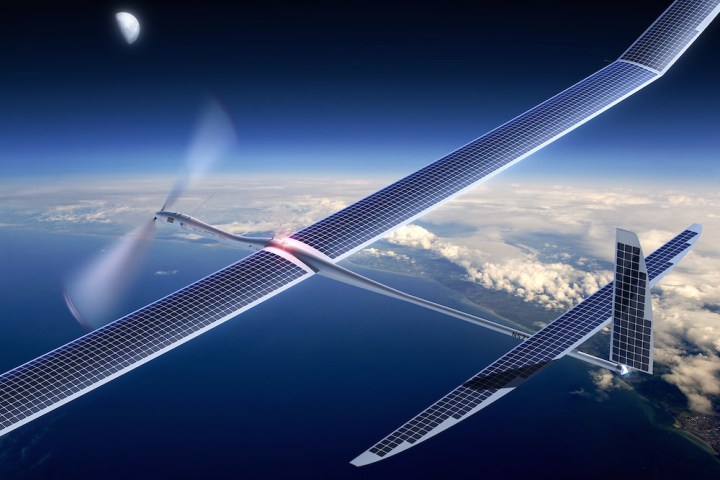
However, it now appears that the filings are linked to Google’s efforts to bring Internet connectivity to remote and underserved regions of the world.
Originally spotted by Engadget, the FAA papers reveal codenames for not one but two new UAVs – M2 and B3 – with both comprising “fixed wing multi-engine” designs.
Later on Tuesday, Re/code reported that sources with knowledge of the matter said the listed drones are actually linked to Titan Aerospace, a firm specializing in high-altitude drone technology that Google acquired last year.
Similar to Facebook’s drone-based Internet project, Google has its sights set on creating a network of Internet-giving drones in the Earth’s upper atmosphere. The Web giant’s Project Loon also has the same goal, but involves helium-filled balloons instead of drones.
Titan Aerospace’s current solar-powered drones can stay in the air for up to five years – yes, years – at a time. Besides offering Internet, the drones could also carry cameras capable of enabling a real-time Maps experience that could become an indispensable part of disaster relief operations and the like.
While Google’s FAA registration offers few details about its new drones, it could indicate that the company is close to revealing the next stage of its Internet-for-all plan ahead of new tests.
Project Wing
As for Project Wing, which many of Tuesday’s initial reports assumed were the subject of Google’s FAA paperwork, little is known about how the initiative is progressing. However, Google X chief Astro Teller has promised his team will offer up some details before the end of the year.
Google’s first attempt at building a drone for carrying supplies in disaster zones hit the buffers in March when at least 80 percent of the development team concluded the project wasn’t working and needed a whole new approach.
Editors' Recommendations
- Google’s new Bard AI may be powerful enough to make ChatGPT worry — and it’s already here
- Google Fiber is bringing high-speed internet to five new states
- If Apple designed a gaming PC, it might look like the new HP Envy Desktop
- Drone-delivery specialist Wing lifts the lid on its secret testing facility
- A new Google Pixel 5a leak just showed off its beefy battery


